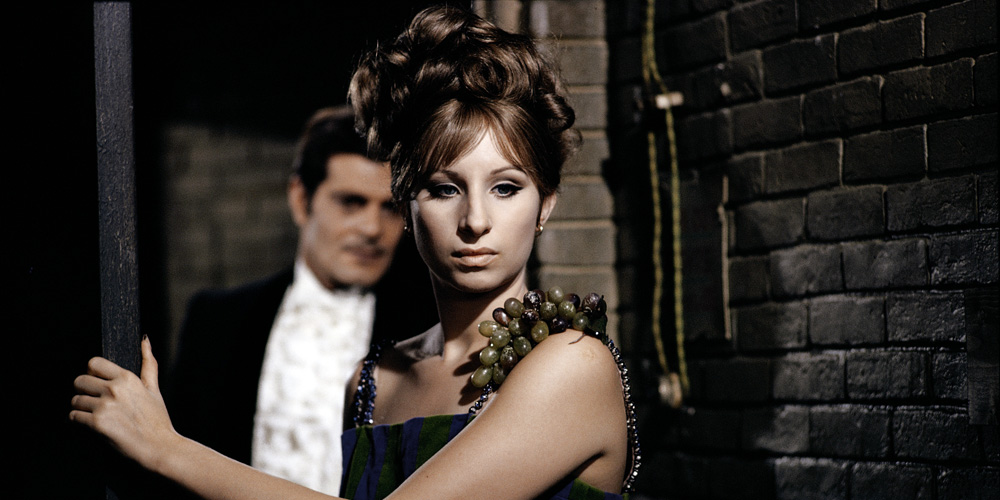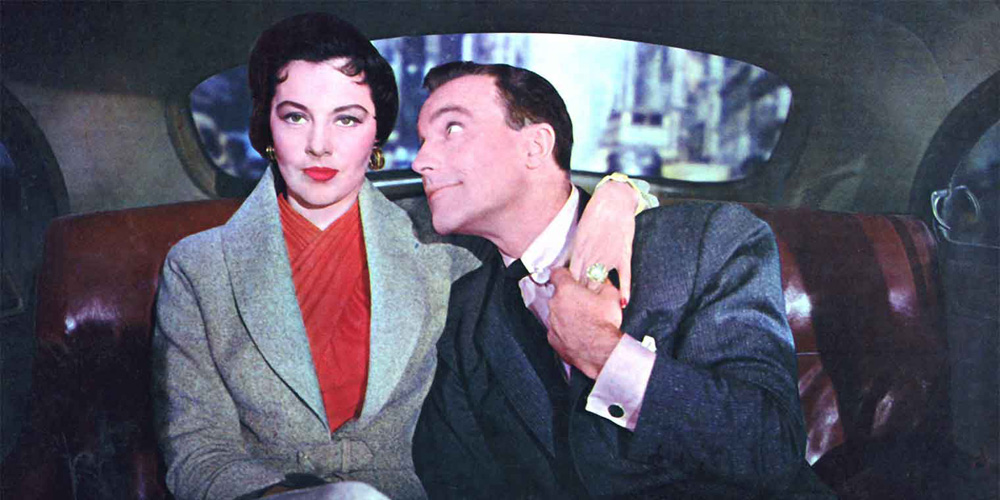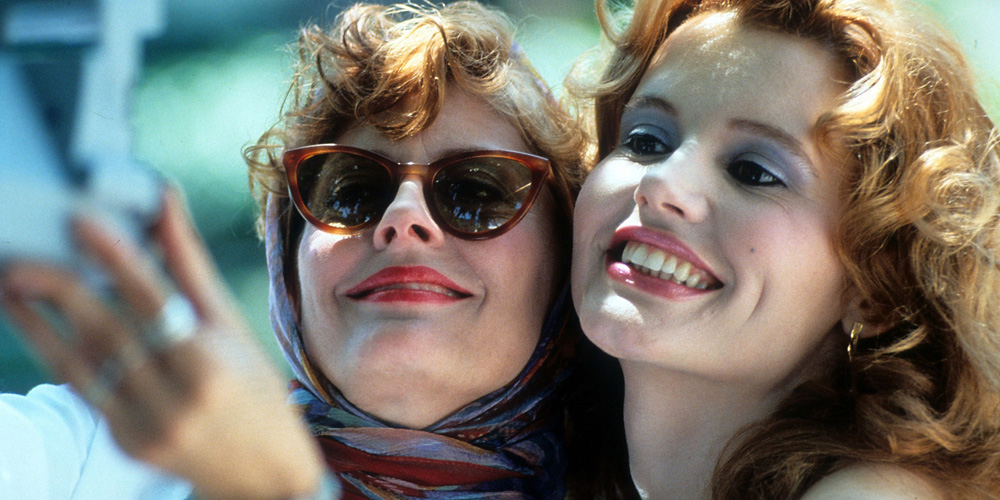This year’s Widescreen Weekend will feature a celebration of ‘Women in Widescreen’, with films showcasing strong women characters, female-powered narratives and themes, and women behind the camera—from editors and writers to VFX artists.
We’re also excited to welcome a fantastic range of female speakers to accompany these films, such as broadcaster and journalist Samira Ahmed and VFX artist Carin-Anne Strohmaier. Over half of the films in this year’s programme will be introduced by women.
Films featuring as part of our celebration can be spotted by our new ‘Women in Widescreen’ stamp. Keep your eyes peeled for this stamp throughout our festival programme!

We will be screening a wide range of female-powered films including musicals, westerns and martial arts—below are a few highlights of the programme, and why they are true representations of ‘Women in Widescreen’.

Funny Girl (1968)

What better way to celebrate positive female characters than with Barbara Streisand and Funny Girl? Our closing night film will be a 50th anniversary screening of this beloved musical.
Barbra Streisand, Actress
Barbra Streisand’s career-defining performance as the film’s protagonist, Fanny Brice, not only propelled her to stardom but also helped bring Jewish female representation to the forefront in a powerful way. Fanny is unapologetically smart, funny, beautiful and talented, at a time where Jewish women were portrayed as timid and stereotypically dependent upon men.
Isobel Lennart, Writer
American screenwriter and playwright Isobel Lennart originally wrote Funny Girl as a Broadway musical. She later wrote the screen adaptation, which won her a Writers Guild of America award for Best Screenplay.

It’s Always Fair Weather (1955)

Adrienne Fazan, Editor
Adrienne Fazan started cutting in 1933, a time in which the profession was extremely male-dominated. She later worked on high-profile musical films such as Singin’ in the Rain, Gigi, An American in Paris and Anchors Aweigh. She was nominated for the Oscar for Best Film Editing for An American in Paris in 1951, and later received the award for Gigi in 1958.
Betty Comden, Writer
Betty Comden provided lyrics and screenplays for some of the most beloved and successful Hollywood musicals, including the screenplay for Singin’ in the Rain. The screenplay for It’s Always Fair Weather stood out in its MGM musical family; the film was seen as a ‘cynical musical’. However, it earned Comden a nomination for both an Oscar and Writers Guild of America Award for Best Writing.

Thelma & Louise (1991)

Perhaps the ultimate female-powered film, Thelma & Louise is full of strong feminist overtones and features two stand-out women protagonists in the characters of Thelma (Geena Davis) and Louise (Susan Sarandon).
Although the film deals with various topics around gender, sexuality and society, it’s the theme of female friendship that resonates with many audiences and has cemented Thelma and Louise as a cult duo. Numerous critics and writers have hailed Thelma & Louise as a landmark in the representation of women and, more than 25 years after its release, it’s still seen as a seminal film.
Callie Khouri, Writer
Callie Khouri is an American film and television screenwriter, producer and director. In 1991, she won the Academy Award for Best Screenplay for Thelma & Louise.

Contact (1997)

Oscar winner Jodie Foster gives a remarkable performance as Contact’s protagonist—Dr. Ellie Arroway, a brilliant and ambitious scientist. While providing a rare onscreen role model for young women interested in science, the film also depicts the challenges women in STEM often face. Ellie battles scepticism and lack of funding in her pursuit for evidence of alien life, but perseveres nonetheless.
Bitch Flicks, a website devoted to reviewing films and television through a feminist lens, has said:
‘Contact’s feminism is all the more stunning to watch two decades after its release because of its stingingly accurate portrayal of sexism in science and refusal to appease the hetero-male gaze.’
Carin-Anne Strohmaier, VFX Artist
We are excited to be welcoming Carin-Anne to Widescreen Weekend to introduce the screening of Contact.
Carin-Anne started her career in film at Walt Disney Studios; she left Disney in 1987 to work with Robert Zemeckis on films including Who Framed Roger Rabbit, Back to the Future II and Forrest Gump. Her career has spanned a wide range of incredible films, both live action and animation.

For more, head over to our website where you can read more about Women in Widescreen and explore the full Widescreen Weekend programme. Why not continue the conversation on social media with #womeninwidescreen?
2 comments on “Women in widescreen”